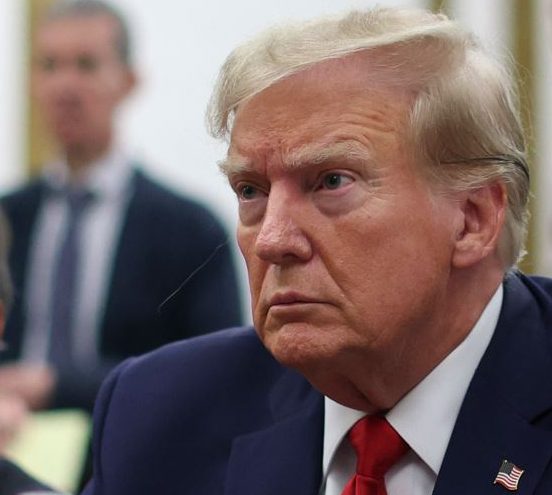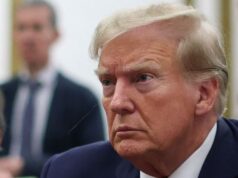U.S. President Donald Trump has issued a warning to Iran, stating that military action will follow if Tehran does not agree to a peace deal and halts its nuclear ambitions.
“If they don’t make a deal, there will be bombing,” Trump reportedly told an NBC News correspondent in an interview late Saturday. He also warned of imposing “secondary tariffs” as further punishment against Iran.
This statement marks an escalation from his earlier remarks, in which he cautioned that if Iran refused to negotiate a new nuclear agreement, “bad, bad things are going to happen to Iran.”
It remains unclear whether Trump was referring to a unilateral U.S. military operation or a coordinated strike involving Israel.
Israeli Foreign Minister Gideon Saar recently told Politico that military intervention should remain a viable option.
“In order to stop a nuclear Iranian program before it will be weaponized, a reliable military option should be on the table,” Saar stated.
Reports suggest that Iran may be only weeks away from developing a deliverable nuclear weapon, though Tehran denies such intentions. Any military strike, however, risks triggering a broader regional conflict.
Trump withdrew the U.S. from the 2015 nuclear deal in 2018, arguing it was ineffective, and reimposed harsh sanctions on Iran.
Now, during his second term, he has indicated a willingness to negotiate a new agreement aimed at reducing tensions.
In early March, Trump disclosed that he had sent a letter to Iran’s Supreme Leader, Ayatollah Ali Khamenei, proposing discussions on a new deal.
Despite Trump’s “maximum pressure” strategy—which includes additional sanctions and military threats—Iran has remained unwilling to engage in direct talks with Washington, citing a lack of trust after the U.S. pulled out of the previous deal.
However, Trump claimed that indirect discussions between U.S. and Iranian officials are ongoing, though he provided no specifics.
On Thursday, Iran’s Foreign Minister Abbas Araghchi told the state-run IRNA news agency that Tehran had sent a response to Trump’s proposal via Oman, which has acted as a diplomatic intermediary in the past.

















